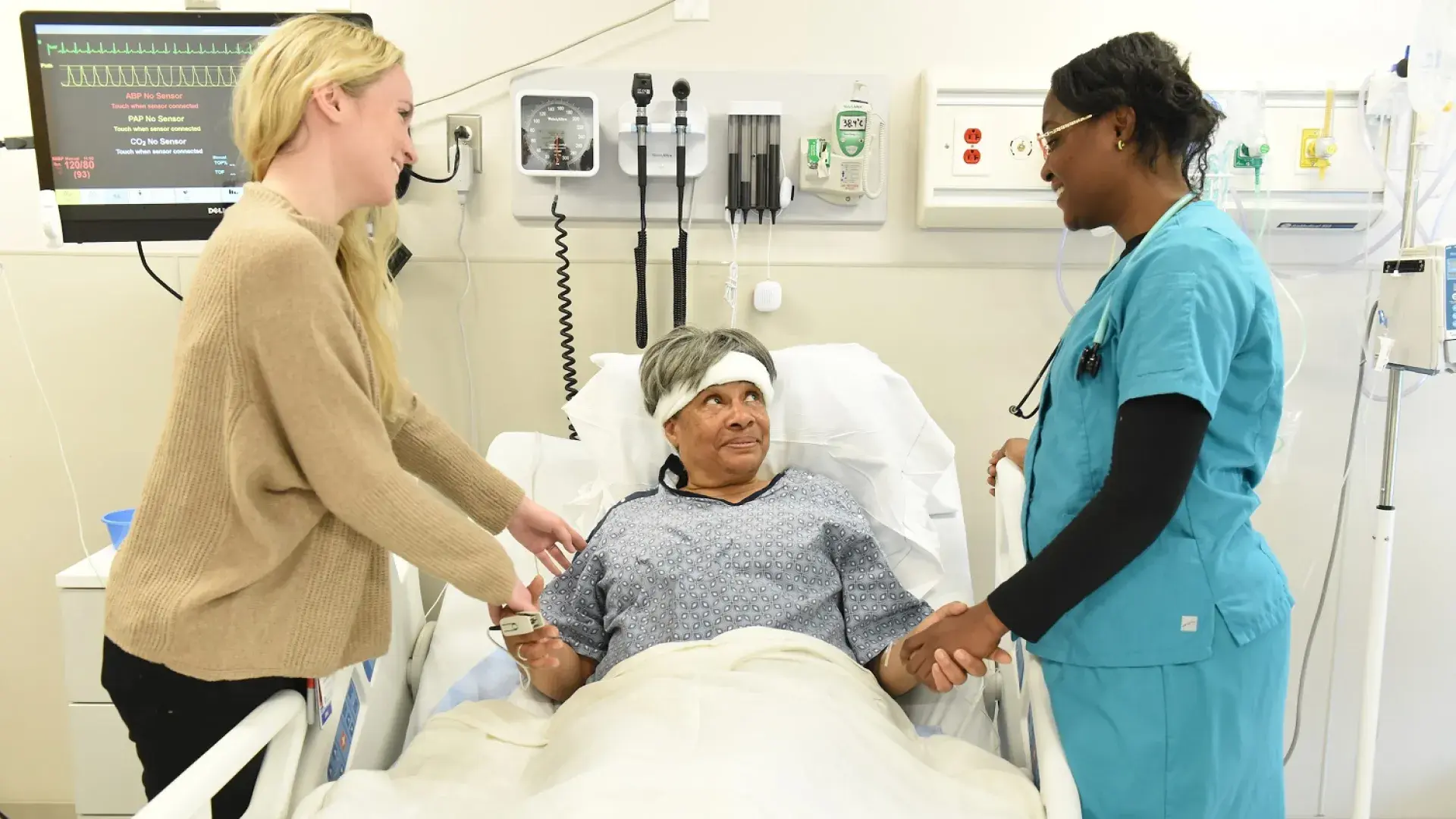
Simulated learning to prepare for real-life situations.
The Simulated Participant (SP) Program at MGH Institute of Health Professions provides a dynamic educational resource to enhance all facets and levels of health professional training.
SPs are employed extensively across the entire scope of the MGH Institute programs. SPs participate in Interprofessional Education (IPE) scenarios and training sessions – they may play the role of a patient or family member as they interact with a healthcare team. SPs may participate in clinical assessment, Objective Structured Clinical Examinations (OSCEs), motivational interviewing sessions, and history, and physical practice sessions, among other activities. Since the spectrum is so broad, extensive training and sharp skills are necessary to succeed as a Simulated Participant.


